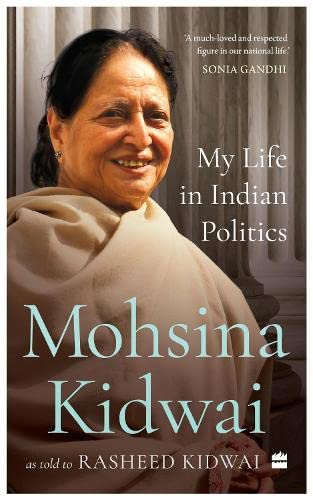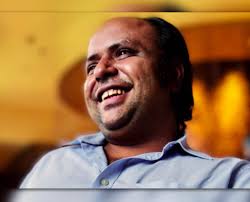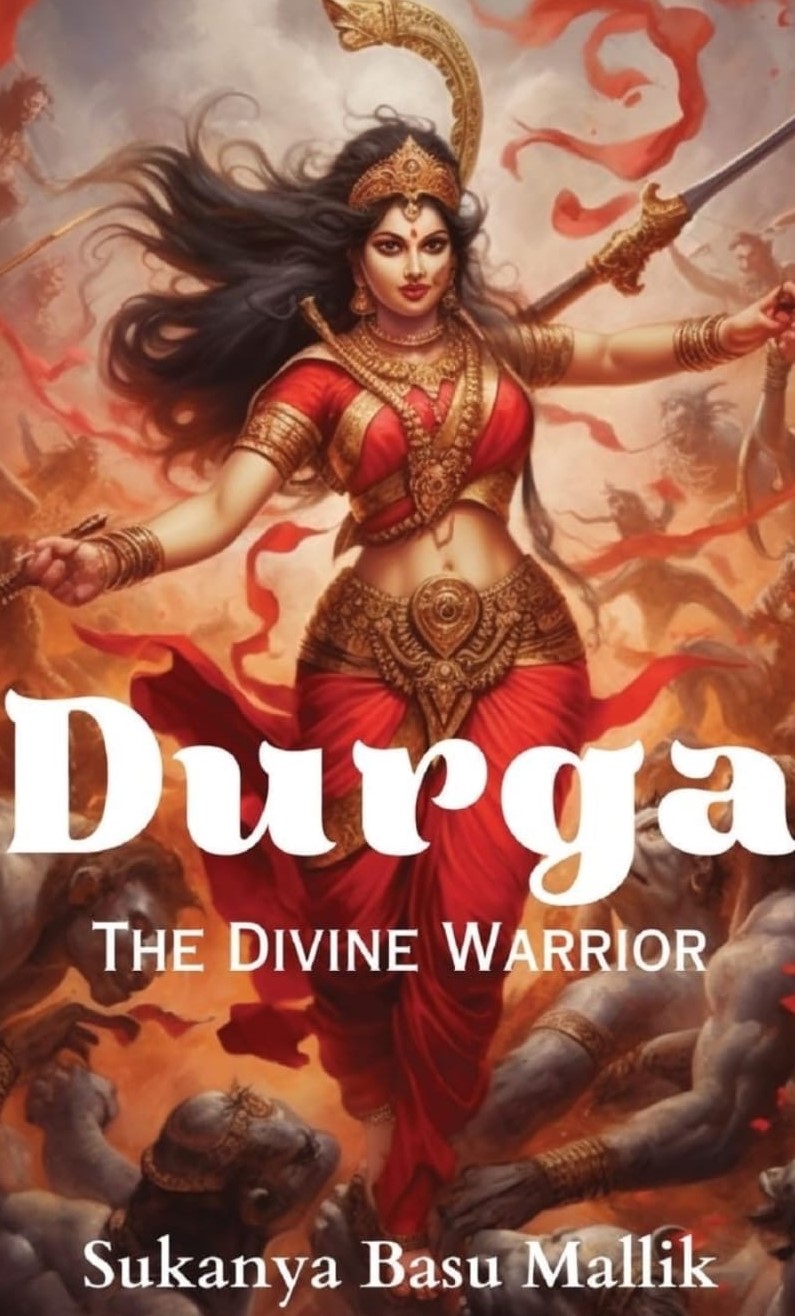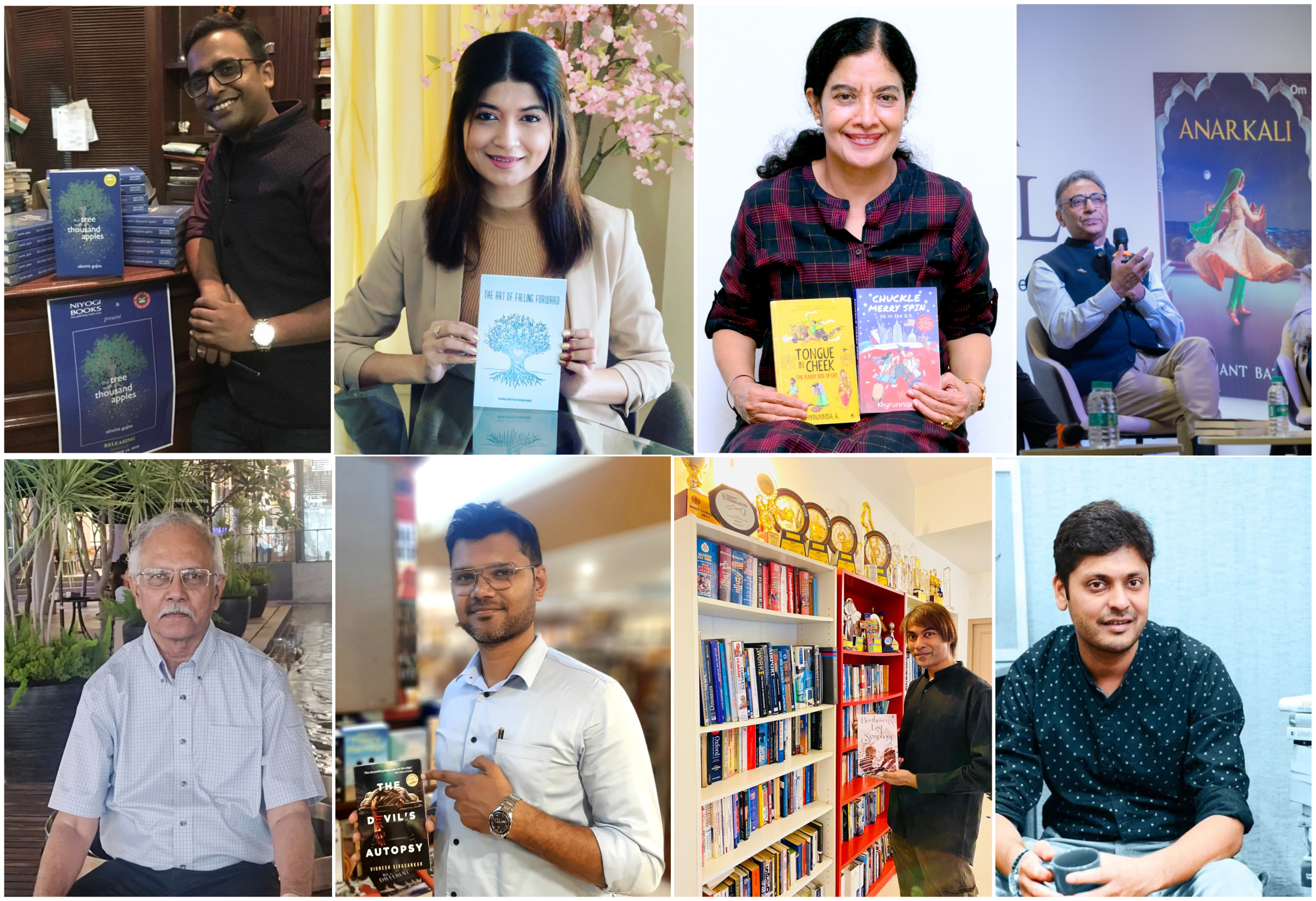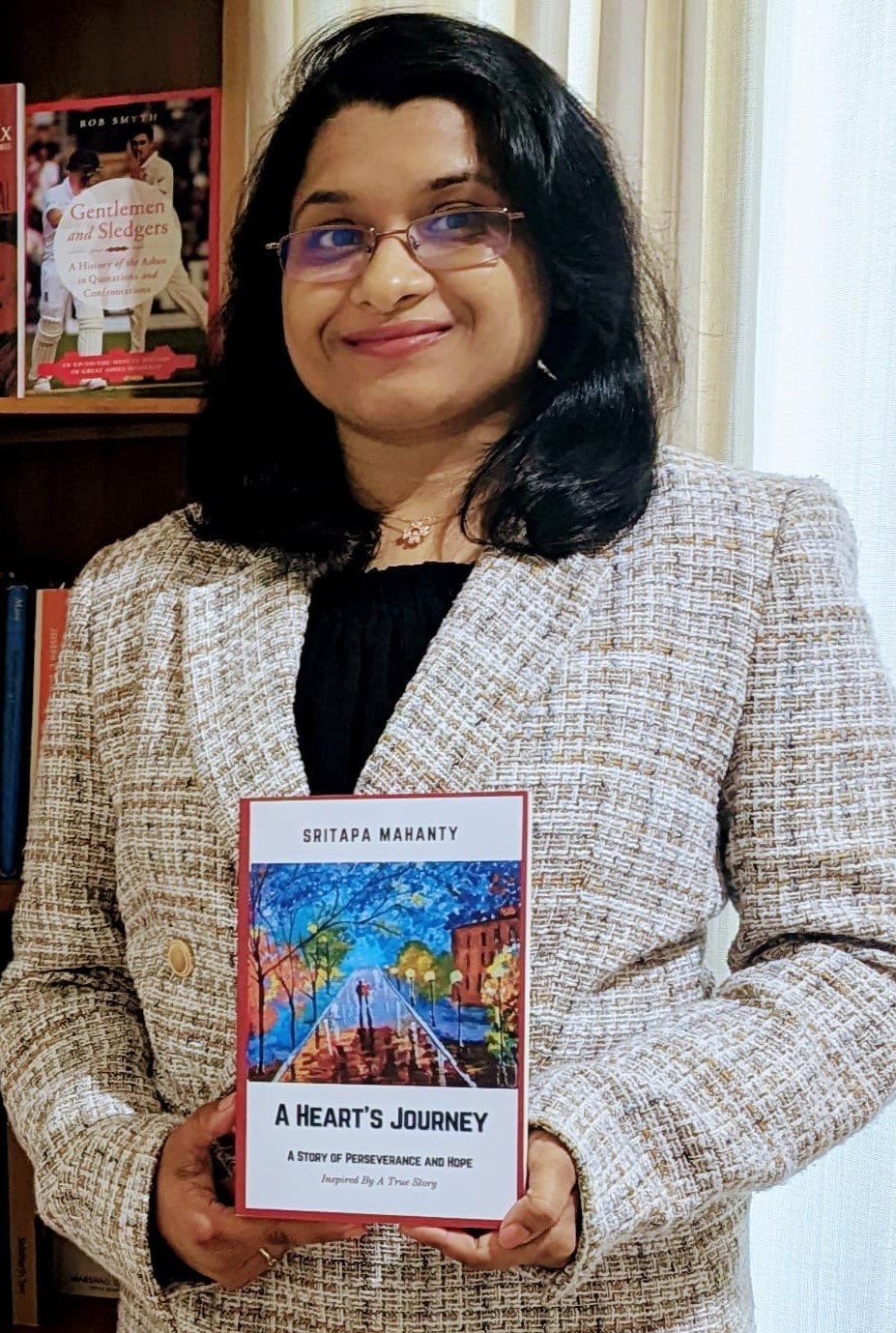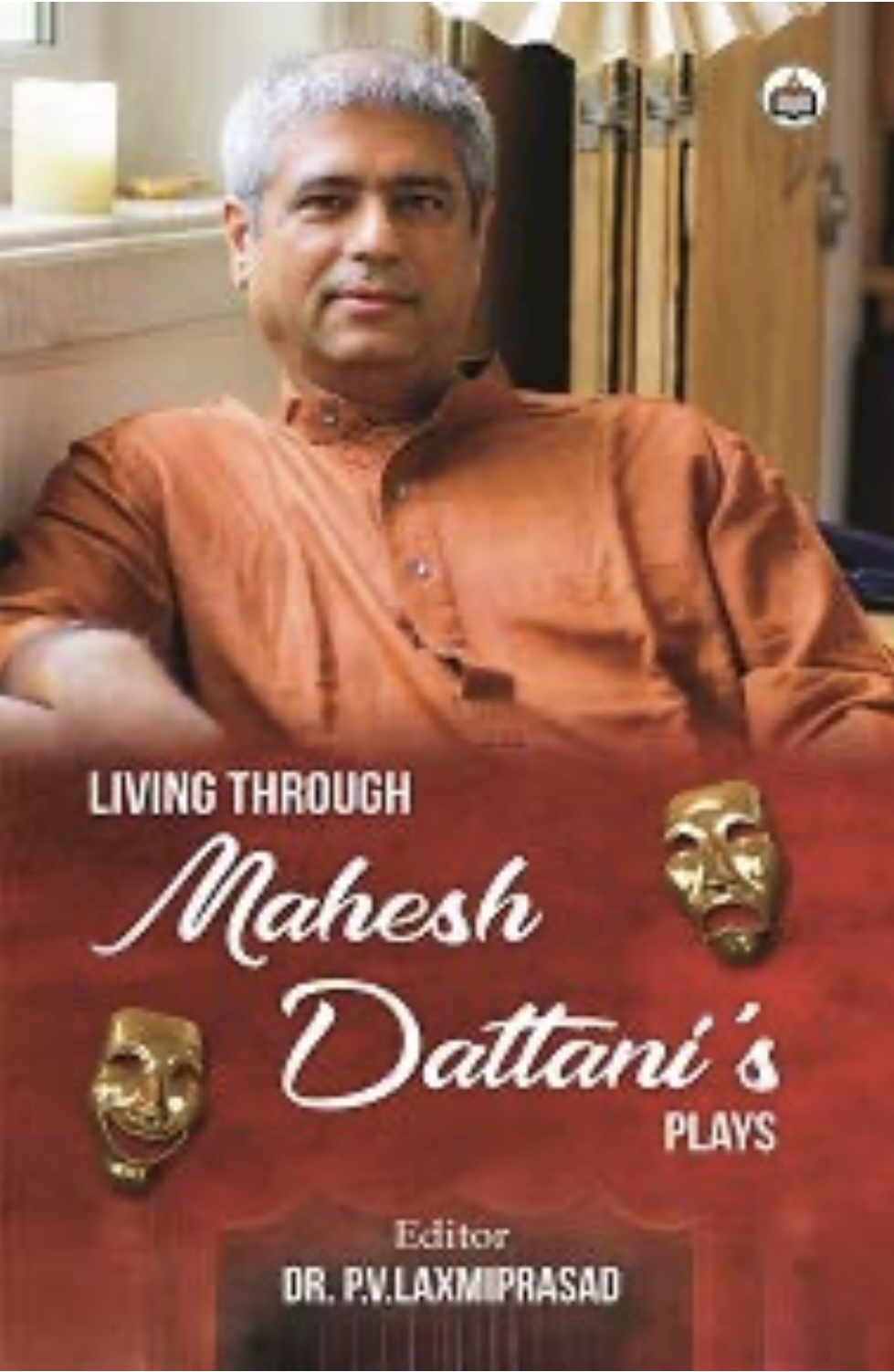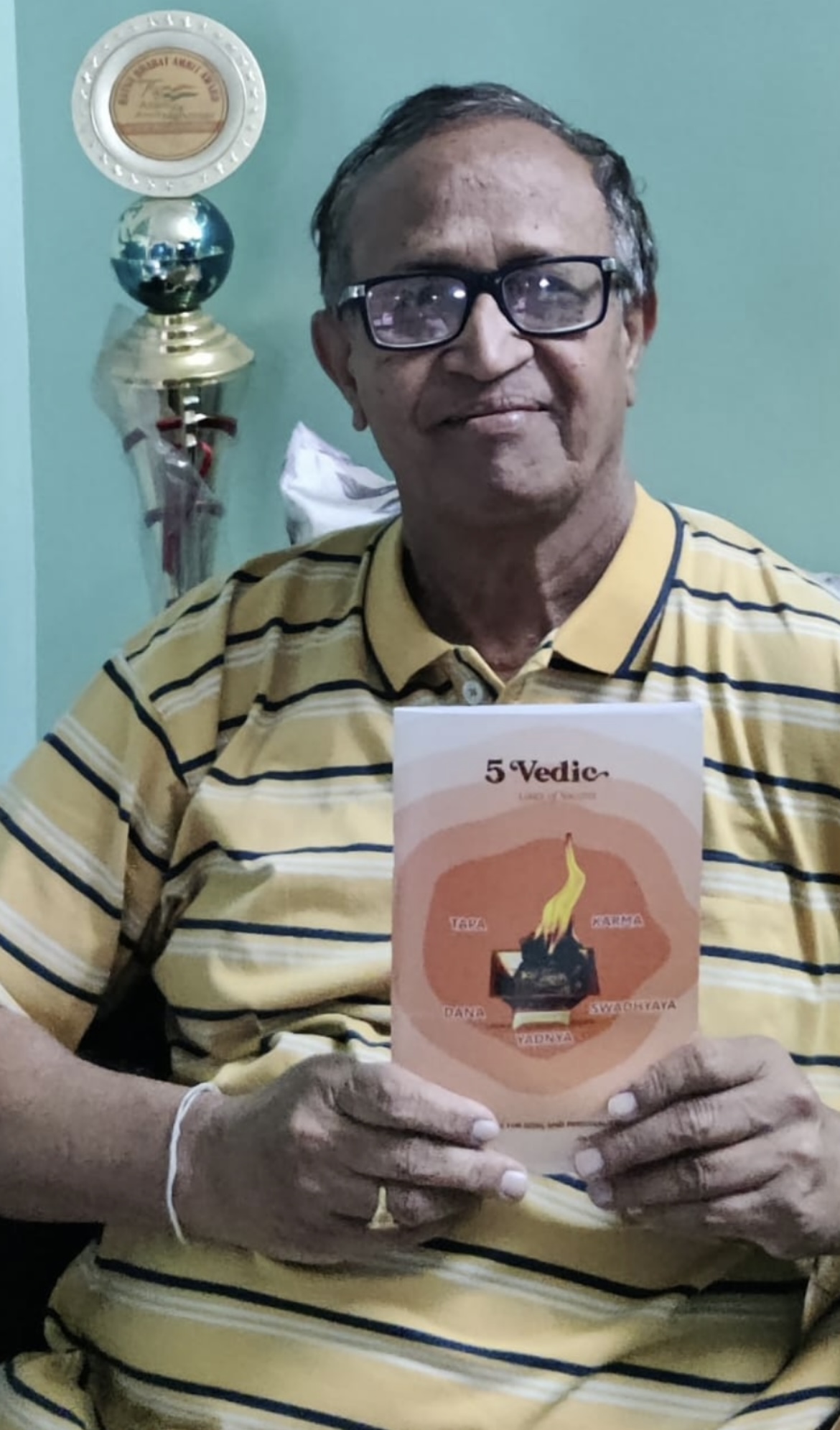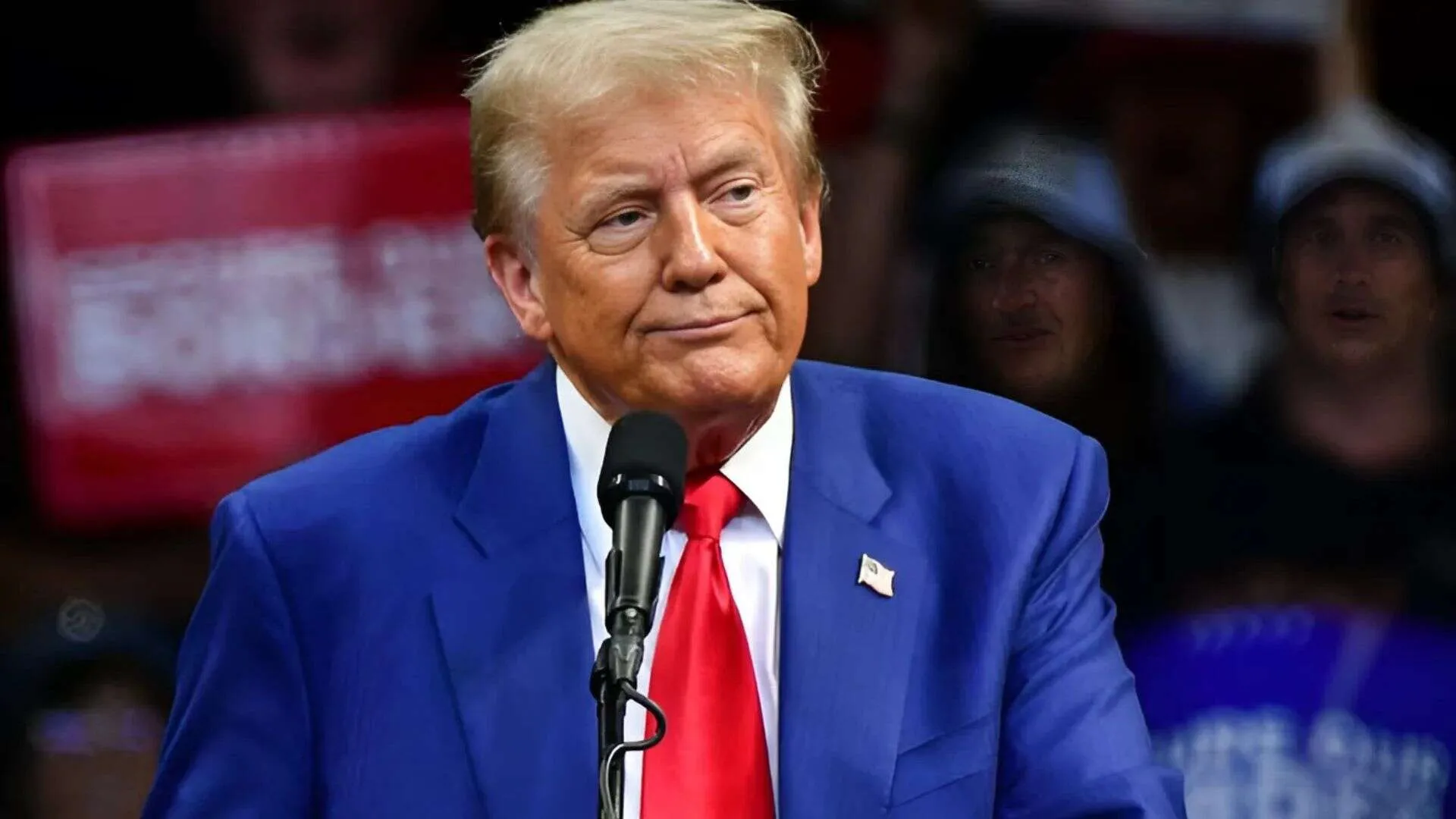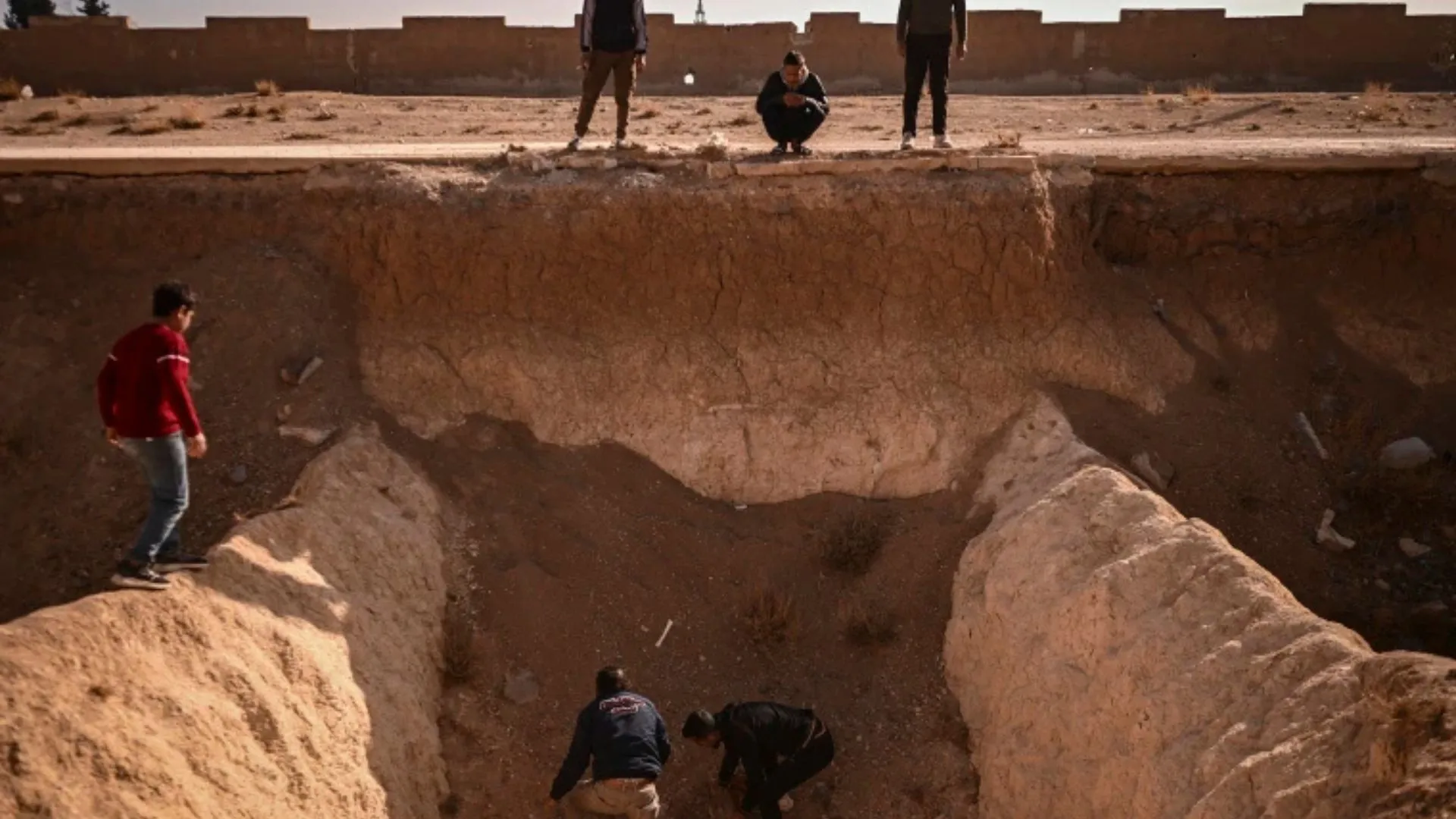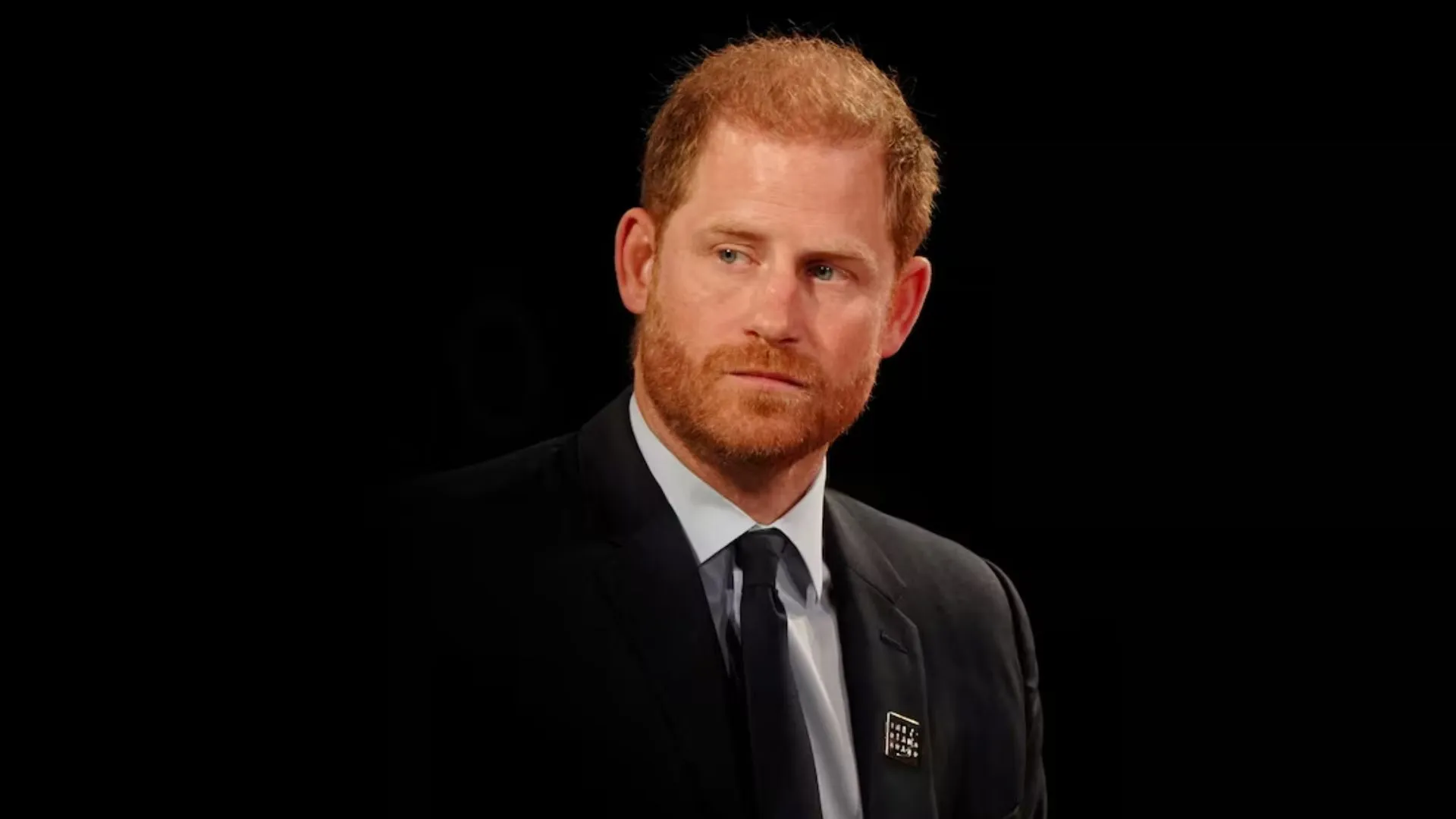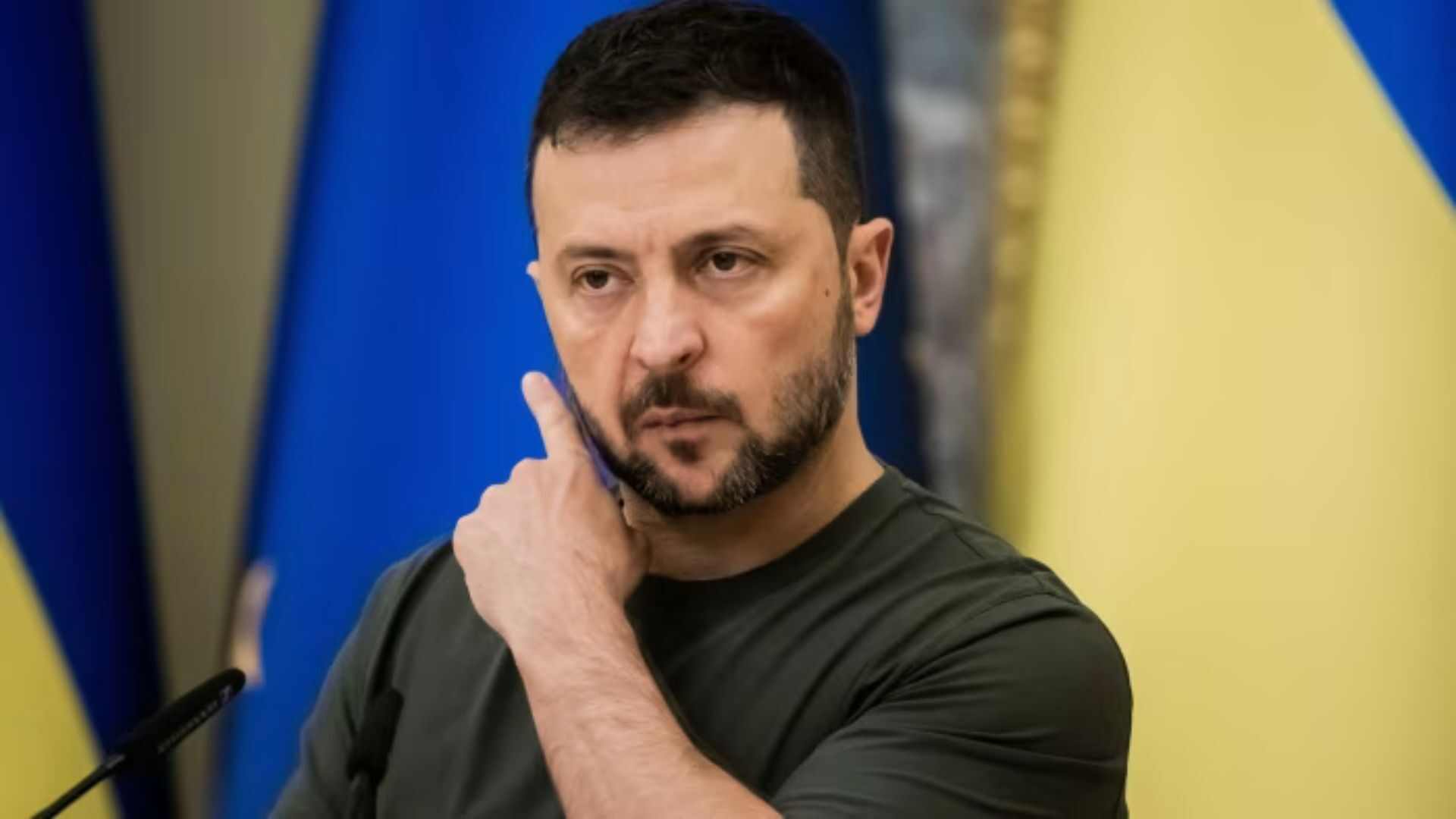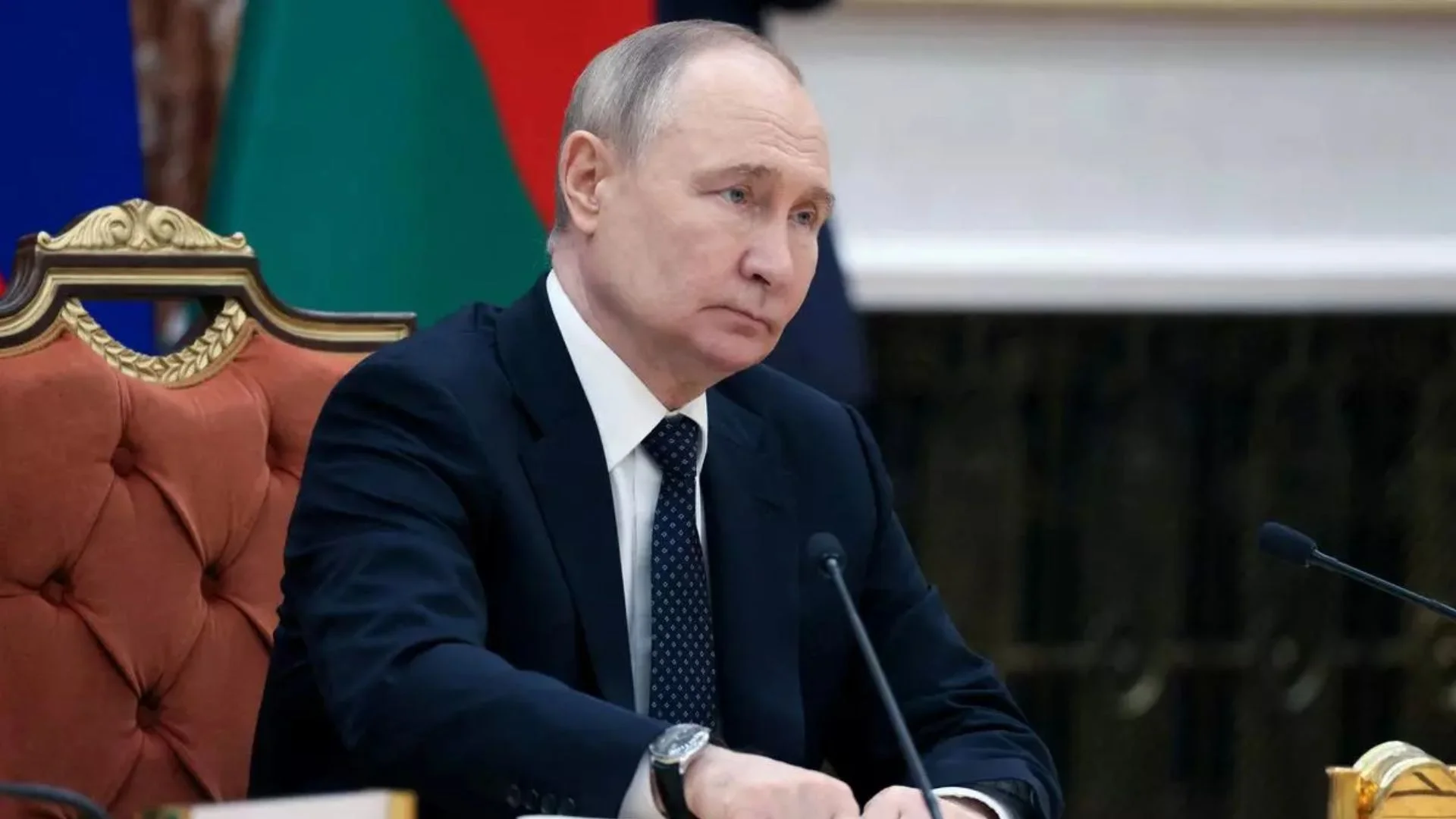In “My Life in Indian Politics”, veteran Congress leader, former Union minister Mohsina Kidwai assesses not just her own contribution to public life, but also provides an honest appraisal of the turn in fortunes of the political party she has remained a loyal member of, the Indian National Congress. Written with the honesty and simplicity that have been her trademark in public life, this then is not just the memoir of a politician; it is an assessment of an entire era in Indian politics. Mohsina’s memoirs are refreshingly different. The first thing that strikes the reader is the number of endorsements—there are two forewords by Dr Manmohan Singh and Sashi Tharoor and a special note from Sonia Gandhi—and the blurbs from A K Antony Digvijaya Singh, Bhupesh Baghel, Sharmila Tagore, Shabana Azmi, Yashwant Sinha, Laloo Prasad Yadav and dozens of others who have been former union ministers, top level bureaucrats, doctors, administrators and others. Most important for the readers is to know from Mohsina Kidwai on why she chose to write her memoir after retirement from public life, “Everyone has a book in them, and perhaps I am no exception. I was a reluctant writer, often wondering, weighing over a range of political, ethical, and personal issues. But as I became less active in public life and saw various trends and shades in our country’s polity, I firmed up my mind to write my memoirs. ‘My Life in Indian Politics’ is a story of my life but in many ways, it is also a journey of our post-independence beloved country. As a political worker of the past and now, it is clear to me that challenges have always been multiple and intricate but not unsurmountable. I find myself fortunate to have enjoyed the uninterrupted adulation of the masses, the party I belonged to, and the leadership I obeyed and respected. Almighty Allah has been considerate in giving me a life that allowed me to reflect, marvel at the beauty of all life and savour the power and positions I was given. No words of gratitude would be enough to thank my creator and fellow human beings who have been an integral part of my journey.” Sonia Gandhi, for instance, says, “Mohsina ji has a remarkable ability to establish a warm rapport with people from across the political spectrum as well as from all walks of life. These qualities, together with her integrity and gentle candour, her deep concern for the more vulnerable sections of society, her personal charm, and her abiding belief in the principles of democracy, pluralism, and social justice, are reflected in her memoirs. No wonder she is a much loved and respected figure in our national life. She is a cherished member of the Congress Party, whose rich experience and wise counsel we value greatly, and also a cherished personal friend.” While glancing through it, the focus on women is hard to miss. Mohsina Kidwai has devoted an entire chapter on her three daughters.My personal favourite is: SECTION IV: DAUGHTERS AND OTHER REMINISCENCES where she devotes a full length chapter on her three daughters,“Words are not enough to express the unconditional love that exists between a mother and a daughter.” The person who wrote these words knew what she was talking about—the tender subtlety of a mother–daughter bond that becomes stronger as they grow more compatible over the years. The book has high drama. There is an elaborate reference to a hijacking incident, “On 20 December 1978, two misguided and overzealous party supporters hijacked an Indian Airlines plane, Flight 410. The Boeing 737, with 126 passengers on board, including two former ministers of Indira Gandhi’s Emergency regime, A.K. Sen and Dharam Bir Sinha, had taken off from Lucknow airport at 5.45 pm on the last leg of its journey from Kolkata (then Calcutta) to Delhi. According to media reports, none of the passengers initially took notice of the two young men, who rose from their seats in the fifteenth row and moved casually towards the cockpit fifteen minutes before the aircraft was due to touch down at Delhi’s Palam airport. The two men, listed on the passenger manifest as Bhola Nath Pandey and Devendra Pandey—they were not related but both were in their late twenties—politely asked the flight purser, G.V. Dey, if they could visit the cockpit. Dey said he would communicate their request to the captain, M.N. Battiwala. As Dey was about to enter the cockpit, one of the men grabbed air hostess Indira Thakuri’s elbow, while his companion tried to force his way into the cockpit. However, the self-locking mechanism on the magnetic door of the cockpit clicked into place. Undeterred, the two men threw their weight against the door until it flew open, and disappeared inside. By now, the passengers and cabin crew had realised that something was amiss. The hijack drama ended by the evening, when the aircraft landed at Varanasi and taxied to a corner of the runway. The hijackers demanded to speak to Ram Naresh Yadav. The Uttar Pradesh chief minister was contacted, but he refused to oblige. Later, after receiving instructions f r o m Prime Minister Morarji Desai , he took off for Varanasi in a Cessna aircraft owned by the state government. The hijackers had, in the meantime, informed the district authorities through the plane’s wireless that they had four demands, the main one being the unconditional release of Mrs Gandhi from jail. When the passengers complained that the aircraft was getting unbearably stuffy, the hijackers allowed them to open the rear doors. Inside the cockpit, Captain Battiwala pulled back the emergency chute-release lever. Seeing the chute drop down from the doors, a few of the passengers scrambled down onto the tarmac, followed shortly after by almost half the passengers on board. By then, the father of one of the hijackers arrived at Varanasi airport and spoke to his son over the wireless. The father ’s voice shattered their bubble of heroism. The two men meekly walked out of the aircraft, since my name had come up, some legal luminaries— I won’t disclose their identities—advised me to apply for anticipatory bail. I may not have a law degree, but common sense came to my rescue. I told my lawyers that an anticipatory bail plea would be an admission of guilt and would associate the Uttar Pradesh Congress with this incident. I was firm in my decision, which saved me endless rounds of courts and the stigma of an association with an incident of hijacking.” This is just a sample. Mohsina Kidwai’s memoir has much more. Written by a veteran woman leader of the world’s largest democracy, a work like this is a treasure trove and has merit to be reckoned rather than merely judged.
Ashutosh Kumar Thakur is a Bangalore-based Management professional, Literary critic, and Codirector with Kalinga Literary Festival. He can be reached at ashutoshbthakur@ gmail.com.

